With this edgy, funny, wise book, Goldstein may just have found a way to ensure the survival of the religion for another 6,000 years.
Publishers Weekly
Goldstein backs up the title [Gonzo Judaism] with a legitimately creative and irreverent idea about how to engage with Judaism anew: Look to the old.... This is clearly one promising rabbi: he has equal knowledge of (and appreciation for) both ancient tradition and contemporary life.
The Washington Post Book World
Rabbi Goldstein has written a Fear and Loathing on the Torah Trail thats kick-ass but also wise and full of good ideas for what ails American Judaism. He shows that the greatest reverence can come from irreverence.
Newsweek
ABOUT THE BOOK
Here is a book that is both clarion call for a new Jewish agenda and a blueprint for an adventurous but genuine path toward spiritual growth and religious wisdom. Rabbi Niles Elliot Goldstein, founder and Rabbi Emeritus of The New Shul in New York City, says that most conventional Jewish institutions are out-of-touch and have relied too much on nostalgia, guilt, and fearnone of which resonate with modern Jews. He challenges Jews to adopt the gonzo spiritthe rebellious, risk-taking attitude associated with the gonzo journalist Hunter S. Thompsonand to take creative, innovative steps to reshape and revitalize contemporary Judaism.
Goldstein urges readers to take a fresh look at Judaism, to become educated about its history and tradition, to discover what is authentic, yet what also feels spiritually relevant and meaningful, and to create a Jewish culture and community rooted in affirmation, joy, and celebration. He provides a wealth of information on numerous organizations, institutions, synagogues, grassroots groups, and networks that can help get you started on the gonzo path.
To learn more about the author, visit his website at www.nilesgoldstein.com.
RABBI NILES ELLIOT GOLDSTEIN is the founder and Rabbi Emeritus of The New Shul in New York City. His essays and poetry have appeared in various publications, including Newsweek, the Los Angeles Times, and the Forward. He has been featured in the New York Times, the Wall Street Journal, Glamour, Real Simple, and the Jewish Week, as well as on television and radio.
Sign up to learn more about our books and receive special offers from Shambhala Publications.

Or visit us online to sign up at shambhala.com/eshambhala.
Gonzo
JUDAISM
A Bold Path for
Renewing an
Ancient Faith
RABBI NILES ELLIOT
GOLDSTEIN
 TRUMPETER Boston & London 2011
TRUMPETER Boston & London 2011
TRUMPETER BOOKS
An imprint of Shambhala Publications, Inc.
Horticultural Hall
300 Massachusetts Avenue
Boston, Massachusetts 02115
trumpeterbooks.com
2006 by Niles Elliot Goldstein
Cover design by Jim Zaccaria
Cover art: Jewish shiviti, papercut by Philip Cohen, U.S. 1861.
All rights reserved. No part of this book may be reproduced in any form or by any means, electronic or mechanical, including photocopying, recording, or by any information storage and retrieval system, without permission in writing from the publisher.
Library of Congress Cataloging-in-Publication Data
Goldstein, Niles Elliot, 1966
Gonzo Judaism: a bold path for renewing an ancient faith / Niles Elliot Goldstein.
p. cm.
Reprint. Originally published: New York: St. Martins Press, 2006.
eISBN 978-0-8348-2231-3
ISBN 978-1-59030-768-7 (pbk.: alk. paper)
1. Spiritual lifeJudaism. 2. Jewish way of life. 3. JudaismCustoms and practices. I. Title.
BM723.G66 2010
296.7dc22
2009026466
For Michele
ONE OF THE SURE SIGNS youve entered the world of gonzo is that you often find yourself feeling uneasy and agitatednot angry, really, so much as indignant toward the inane behavior and sheer idiocy of the powers that be. Another is that you feel a deep cynicism and a biting urge to revolt, directly and personally, against the establishment causing your discomfort. You want to get off your ass and jump into the fray. You want to do battle with the Machine, what ever and wherever the Machine might be.
Hunter S. Thompson was the guru of the gonzo form of journalism in the sixties and seventies. What he fought was the dispassionate, objective approach to news writing that was so prevalent in his field at the time. Thompsons approach to the stories he covered was intensely personal and opinionatedhe embedded himself in everything he wrote about, from the violent Hells Angels motorcycle gang to the seedy culture of Las Vegas. He was outrageous and, not infrequently, offensive. Like the blast of a rams horn on Rosh Hashanah, Thompsons words shook people up, kept them awake, and forced them to think and see in new ways.
Thats what a gonzo form of Judaism can do in our own era.
I first felt the gonzo impulse for myself a few years ago, when the Southern Baptist Convention came out with a public statement in which they said that as part of their continuing mission to spread the good news and try to win converts to Christianity, they would start to proselytize actively among members of the Jewish community. I was a freshly minted rabbi and, at the time, still read all the Jewish papers and magazines. The reaction from the Jewish leadership was swift, uniform, and unequivocal. Full-page denunciations were published in major newspapers across the country. Familiar talking heads appeared on Nightline and throughout the national media, saying: Anti-Semitic assault! Bible-thumpers coming after our sons and daughters! A new Holocaust!
I was furious. Yet my outrage seemed to stand in stark disconnect from that of most other rabbis and executives of Jewish organizations, who demanded that other Baptist and Christian leaders denounce the plan. While I found, and find, the evangelical focus on proselytization to be highly problematic, even ungodly, these Baptists were just being true to their fundamentalist theology. I wasnt mad at themI was angry with us. Our real adversary wasnt this Southern Baptist denomination, but ourselves. If wed only offer American Jewsespecially younger and searching onesa Judaism that was vibrant, inspiring, edgy, and joyful, rather than one that was fearful, defensive, ossified, and out of touch with the needs and desires of a new generation of Jews, no one would even be tempted to look elsewhere for their spiritual sustenance.
I wanted to say to both these Baptists and my colleagues: Go ahead, come at me with your best shot. Im standing my ground, and Im standing it confidently and proudly. Im not going anywhere.
I felt the gonzo impulse again, even more intensely, with the release of Mel Gibsons controversial movie The Passion of the Christ. Though several years had passed since their open warfare with these Southern Baptists, the reaction of Jewish leaders was nearly identical. Angry protestations appeared in the papers and filled the airwaves and television screens. The usual suspectsthe same individuals whod spoken out against these Baptistswere interviewed by the press over and over again. What did they have to say about the film? Anti-Semitic! Dangerous! A recipe for modern pogroms!
Holy crap, I thought. What a waste of energy, time, and resourcesall of which could (and should) have been put to better use creating the kind of Judaism our people so passionately crave. I offered some of these opinions to the press myself, but I was in the vast, almost silent (or ignored) minority. Then, in our celebrity-driven culture, there was the other burning question: Was Mel Gibson himself an anti-Semite? I didnt know and I didnt care. While his film, as most serious scholars noted, was a clear distortion of very murky historical events described in the Gospels, it was
Next page
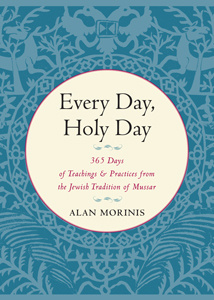

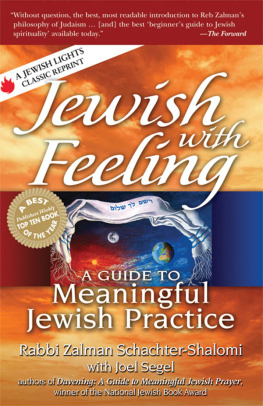
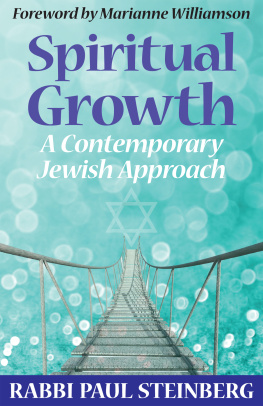
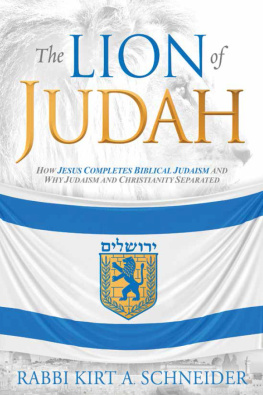
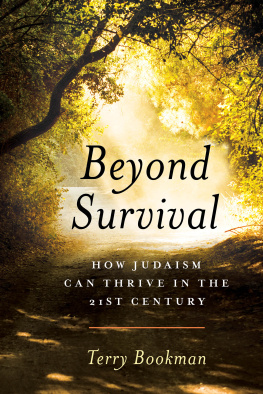


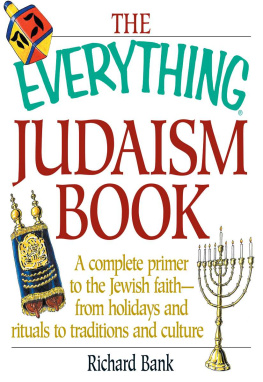
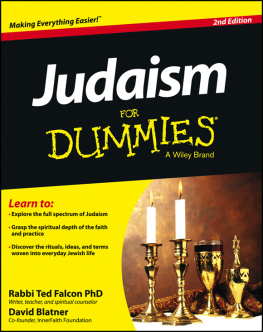

 TRUMPETER Boston & London 2011
TRUMPETER Boston & London 2011